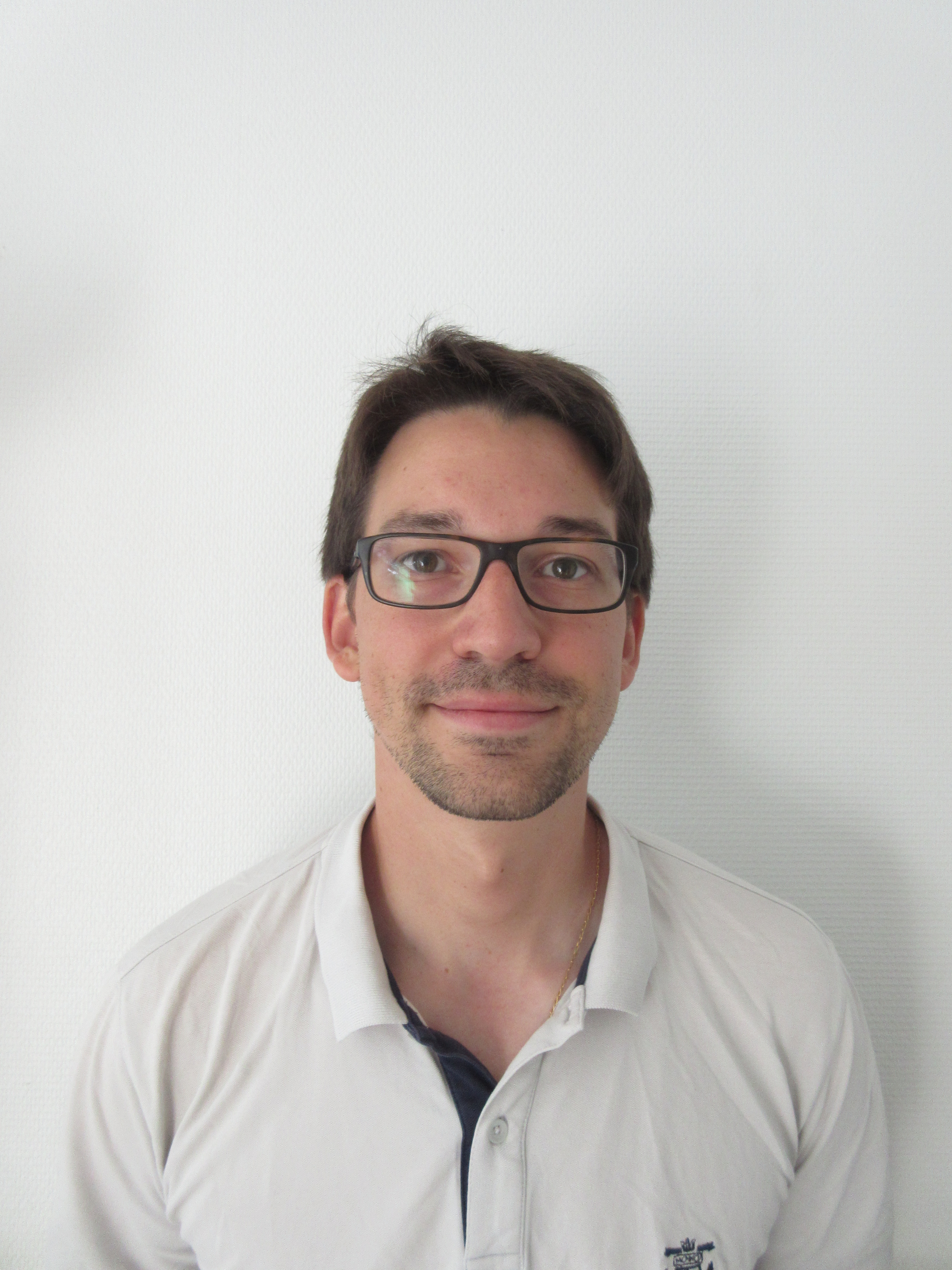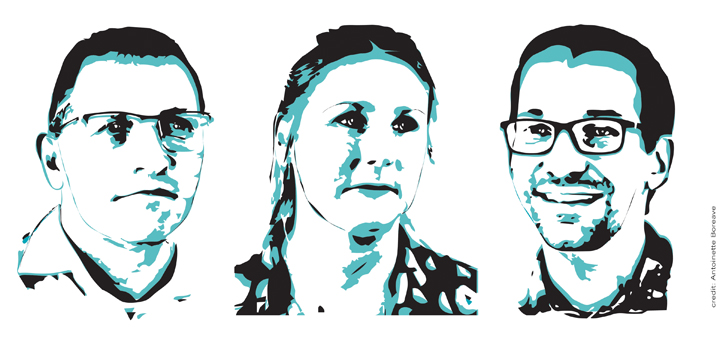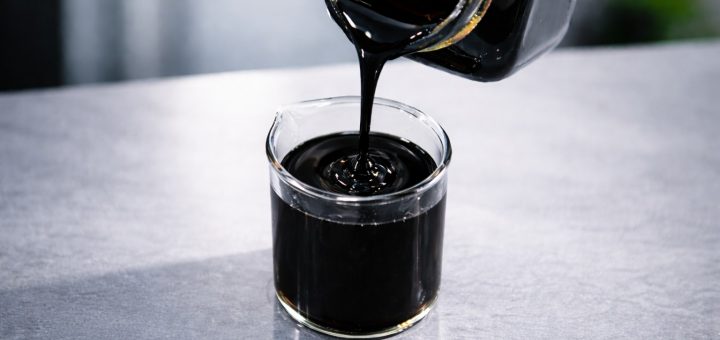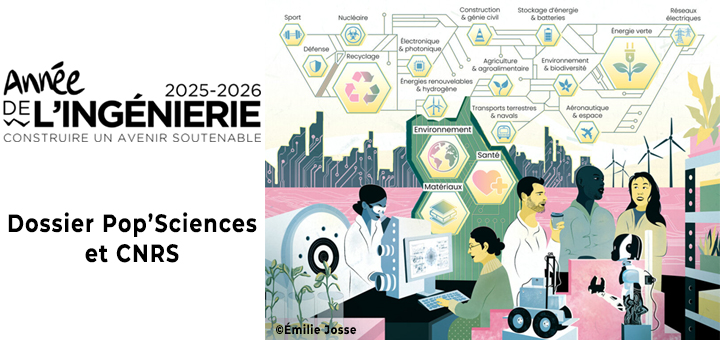Zanotti G., Palmeri F., Raglione V., Khodadadi A.,  Camille Tabaries Personnel étudiant ou non permanent 445 300 (Standard + 33 [0] 472 445 300) P-328 Tabaries C., Capitolis J.,
Camille Tabaries Personnel étudiant ou non permanent 445 300 (Standard + 33 [0] 472 445 300) P-328 Tabaries C., Capitolis J.,  Mathieu Prevot Chercheur 445 443 (Standard + 33 [0] 472 445 300) P-322 Prevot M.,
Mathieu Prevot Chercheur 445 443 (Standard + 33 [0] 472 445 300) P-322 Prevot M.,  Laurent Piccolo Chercheur 445 324 (Standard + 33 [0] 472 445 300) P302 Piccolo L., Zendehdel M., Flammini R., Contini G.
Laurent Piccolo Chercheur 445 324 (Standard + 33 [0] 472 445 300) P302 Piccolo L., Zendehdel M., Flammini R., Contini G.
Eco-Friendly Synthesis of Cobalt Phthalocyanine for High-Efficiency CO2${\rm CO}_{2}$ Electroreduction
CHEMISTRY-A EUROPEAN JOURNAL, 2025, p.
 Clement Spadetto Personnel étudiant ou non permanent 445 300 (Standard + 33 [0] 472 445 300) Cl-15010 Spadetto C.,
Clement Spadetto Personnel étudiant ou non permanent 445 300 (Standard + 33 [0] 472 445 300) Cl-15010 Spadetto C.,  Cyril Hachemi Personnel étudiant ou non permanent 445 300 (Standard + 33 [0] 472 445 300) P1309 Hachemi C.,
Cyril Hachemi Personnel étudiant ou non permanent 445 300 (Standard + 33 [0] 472 445 300) P1309 Hachemi C.,  Mathieu Prevot Chercheur 445 443 (Standard + 33 [0] 472 445 300) P-322 Prevot M.
Mathieu Prevot Chercheur 445 443 (Standard + 33 [0] 472 445 300) P-322 Prevot M.
Powering lignocellulose biorefineries with solar energy - a critical review with furfural as a case study
GREEN CHEMISTRY, 2025, p.
Garduno-Ibarra I.,  Zhigang Yan Personnel étudiant ou non permanent 431 587 (Standard + 33 [0] 472 445 300) C-15002 Yan Z., Ebrahim S., Baranova E., Gonzalez-Cobos J.,
Zhigang Yan Personnel étudiant ou non permanent 431 587 (Standard + 33 [0] 472 445 300) C-15002 Yan Z., Ebrahim S., Baranova E., Gonzalez-Cobos J.,  Mathieu Prevot Chercheur 445 443 (Standard + 33 [0] 472 445 300) P-322 Prevot M.,
Mathieu Prevot Chercheur 445 443 (Standard + 33 [0] 472 445 300) P-322 Prevot M.,  Philippe Vernoux Chercheur 431 587 (Standard + 33 [0] 472 445 300) C15.009 Vernoux P.
Philippe Vernoux Chercheur 431 587 (Standard + 33 [0] 472 445 300) C15.009 Vernoux P.
Ni-Based Catalysts for 5-Hydroxymethylfurfural Electrooxidation Coupled with Hydrogen Production
CHEMELECTROCHEM, 2025, p.
 Mathieu Prevot Chercheur 445 443 (Standard + 33 [0] 472 445 300) P-322 Prevot M., Finelli V., Carrier X., Deplano G., Cavallo M.,
Mathieu Prevot Chercheur 445 443 (Standard + 33 [0] 472 445 300) P-322 Prevot M., Finelli V., Carrier X., Deplano G., Cavallo M.,  Elsje Alessandra Quadrelli Chercheur 445 359 (Standard + 33 [0] 472 445 300) P114 Quadrelli E. A., Michel J., Pietraru M., Camp C., Forghieri G., Gagliardi A., Seidel S., Missemer A., Reuillard B., Centrella B., Bordiga S., Salamanca Gonzalez M., Artero V., Birkelbach K., Von Wolff N.
Elsje Alessandra Quadrelli Chercheur 445 359 (Standard + 33 [0] 472 445 300) P114 Quadrelli E. A., Michel J., Pietraru M., Camp C., Forghieri G., Gagliardi A., Seidel S., Missemer A., Reuillard B., Centrella B., Bordiga S., Salamanca Gonzalez M., Artero V., Birkelbach K., Von Wolff N.
An anthropocene-framed transdisciplinary dialog at the chemistry-energy nexus
CHEMICAL SCIENCE, 2024, p.
Chansiriwat W., Wantala K., Khunphonoi R., Khemthong P.,  Chantal Lorentz Personnel technique et administratif 445 339 (Standard + 33 [0] 472 445 300) P206 Lorentz C., Magalhaes B.,
Chantal Lorentz Personnel technique et administratif 445 339 (Standard + 33 [0] 472 445 300) P206 Lorentz C., Magalhaes B.,  Mathieu Prevot Chercheur 445 443 (Standard + 33 [0] 472 445 300) P-322 Prevot M.,
Mathieu Prevot Chercheur 445 443 (Standard + 33 [0] 472 445 300) P-322 Prevot M.,  Dorothee Laurenti Chercheur 445 327 (Standard + 33 [0] 472 445 300) P310 Laurenti D.,
Dorothee Laurenti Chercheur 445 327 (Standard + 33 [0] 472 445 300) P310 Laurenti D.,  Christophe Geantet Chercheur 445 336 (Standard + 33 [0] 472 445 300) P207 Geantet C.
Christophe Geantet Chercheur 445 336 (Standard + 33 [0] 472 445 300) P207 Geantet C.
Gypsum-derived CaO catalytic pyrolysis of palm oil in a continuously packed bed reactor
JOURNAL OF ANALYTICAL AND APPLIED PYROLYSIS, 2024, 178, p.
 Clement Spadetto Personnel étudiant ou non permanent 445 300 (Standard + 33 [0] 472 445 300) Cl-15010 Spadetto C.,
Clement Spadetto Personnel étudiant ou non permanent 445 300 (Standard + 33 [0] 472 445 300) Cl-15010 Spadetto C.,  Cyril Hachemi Personnel étudiant ou non permanent 445 300 (Standard + 33 [0] 472 445 300) P1309 Hachemi C., Nouaille-Degorce M., Pendu L.,
Cyril Hachemi Personnel étudiant ou non permanent 445 300 (Standard + 33 [0] 472 445 300) P1309 Hachemi C., Nouaille-Degorce M., Pendu L.,  Lou Bossert Personnel étudiant ou non permanent 445 300 (Standard + 33 [0] 472 445 300) P-308 Bossert L., Temperton R., Shavorskiy A.,
Lou Bossert Personnel étudiant ou non permanent 445 300 (Standard + 33 [0] 472 445 300) P-308 Bossert L., Temperton R., Shavorskiy A.,  Luis Cardenas Chercheur 445 314 (Standard + 33 [0] 472 445 300) P205 Cardenas L.,
Luis Cardenas Chercheur 445 314 (Standard + 33 [0] 472 445 300) P205 Cardenas L.,  Mathieu Prevot Chercheur 445 443 (Standard + 33 [0] 472 445 300) P-322 Prevot M.
Mathieu Prevot Chercheur 445 443 (Standard + 33 [0] 472 445 300) P-322 Prevot M.
Electrocatalytic Hydrogenation of Furfural with Improved Activity and Selectivity at the Surface of Structured Copper Electrodes
ACS CATALYSIS, 2024, 14 (7), pp. 4489-4500
Magalhaes B.,  Ruben Checa Personnel technique et administratif 445 326 (Standard + 33 [0] 472 445 300) P304 Checa R.,
Ruben Checa Personnel technique et administratif 445 326 (Standard + 33 [0] 472 445 300) P304 Checa R.,  Chantal Lorentz Personnel technique et administratif 445 339 (Standard + 33 [0] 472 445 300) P206 Lorentz C.,
Chantal Lorentz Personnel technique et administratif 445 339 (Standard + 33 [0] 472 445 300) P206 Lorentz C.,  Mathieu Prevot Chercheur 445 443 (Standard + 33 [0] 472 445 300) P-322 Prevot M.,
Mathieu Prevot Chercheur 445 443 (Standard + 33 [0] 472 445 300) P-322 Prevot M.,  Pavel Afanasiev Chercheur 445 466 (Standard + 33 [0] 472 445 300) P306 Afanasiev P.,
Pavel Afanasiev Chercheur 445 466 (Standard + 33 [0] 472 445 300) P306 Afanasiev P.,  Dorothee Laurenti Chercheur 445 327 (Standard + 33 [0] 472 445 300) P310 Laurenti D.,
Dorothee Laurenti Chercheur 445 327 (Standard + 33 [0] 472 445 300) P310 Laurenti D.,  Christophe Geantet Chercheur 445 336 (Standard + 33 [0] 472 445 300) P207 Geantet C.
Christophe Geantet Chercheur 445 336 (Standard + 33 [0] 472 445 300) P207 Geantet C.
Catalytic Hydrotreatment of Algal HTL Bio-Oil over Phosphide, Nitride, and Sulfide Catalysts
CHEMCATCHEM, 2023, p.
Gonzalez-Cobos J.,  Mathieu Prevot Chercheur 445 443 (Standard + 33 [0] 472 445 300) P-322 Prevot M.,
Mathieu Prevot Chercheur 445 443 (Standard + 33 [0] 472 445 300) P-322 Prevot M.,  Philippe Vernoux Chercheur 431 587 (Standard + 33 [0] 472 445 300) C15.009 Vernoux P.
Philippe Vernoux Chercheur 431 587 (Standard + 33 [0] 472 445 300) C15.009 Vernoux P.
Electrolysis of lignin for production of chemicals and hydrogen Philippe Vernoux
CURRENT OPINION IN ELECTROCHEMISTRY, 2023, 39, p.
Coudercy C.,  Mathieu Prevot Chercheur 445 443 (Standard + 33 [0] 472 445 300) P-322 Prevot M.,
Mathieu Prevot Chercheur 445 443 (Standard + 33 [0] 472 445 300) P-322 Prevot M.,  Pavel Afanasiev Chercheur 445 466 (Standard + 33 [0] 472 445 300) P306 Afanasiev P.,
Pavel Afanasiev Chercheur 445 466 (Standard + 33 [0] 472 445 300) P306 Afanasiev P.,  Stephane Loridant Chercheur 445 334 (Standard + 33 [0] 472 445 300) P311 Loridant S.
Stephane Loridant Chercheur 445 334 (Standard + 33 [0] 472 445 300) P311 Loridant S.
In situ Generation of Intimacy in MnOx+SAPO-34 Mechanical Mixture for the Conversion of Syngas to Light Olefins
CHEMCATCHEM, 2023, p.



























